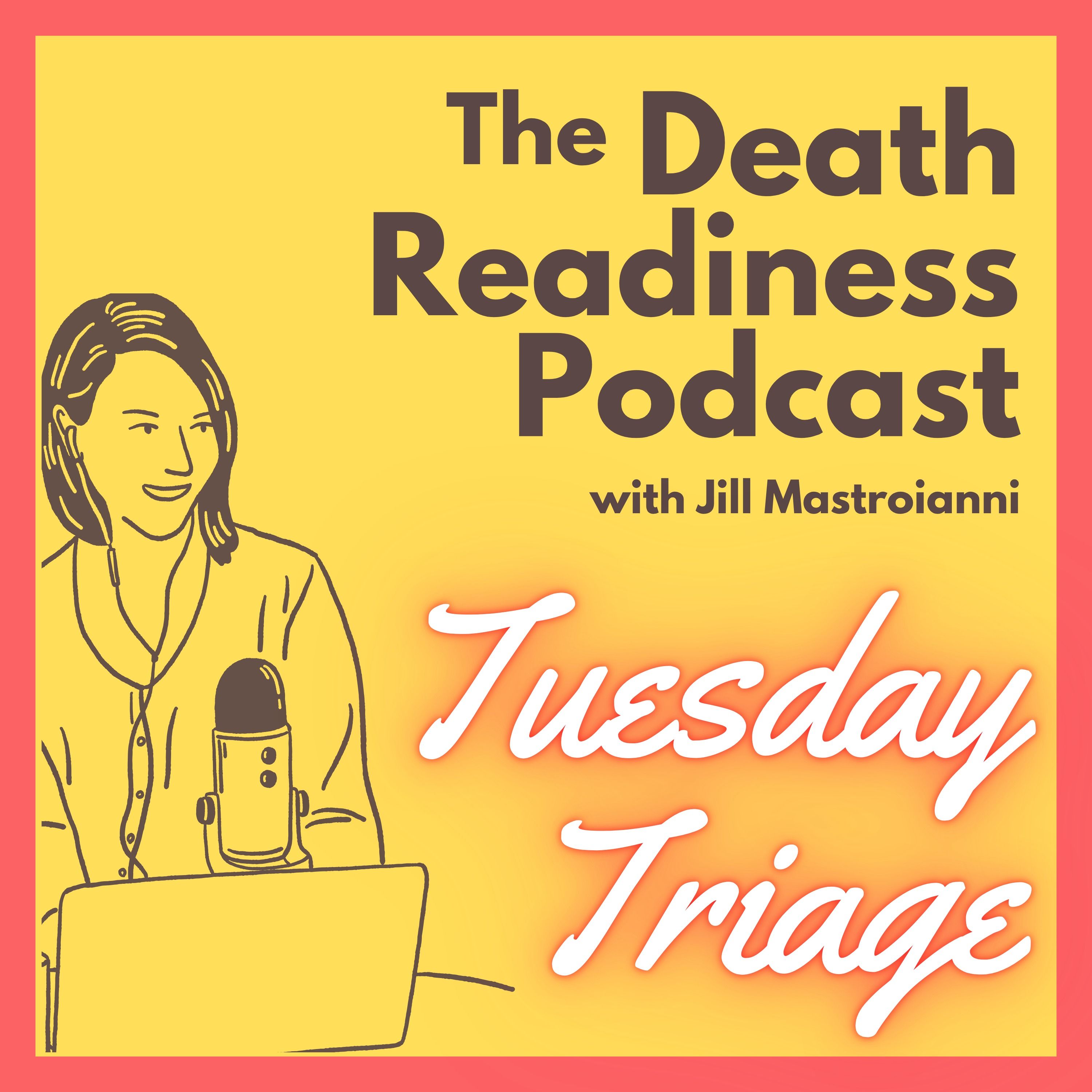How to Protect Your Aging Parents and Avoid Probate Court
- Author
- Jill Mastroianni
- Published
- Tue 26 Aug 2025
- Episode Link
- https://the-death-readiness-podcast-3d003d68.simplecast.com/episodes/how-to-protect-your-aging-parents-and-avoid-probate-court-wvnop31w
Guardianship. Probate court. Powers of attorney. These terms can feel intimidating but they don’t have to be. In this episode, Jill Mastroianni breaks down the differences between powers of attorney and guardianship, and shares actionable steps to help you protect your aging parents, and yourself, from unnecessary stress, cost, and court involvement.
What Jill discussed:
Guardianship vs. Power of Attorney:
- How these two tools differ and when each comes into play.
- Why guardianships (or conservatorships, in some states) should be the last resort.
Capacity and Timing:
- Why mental capacity is critical for signing a power of attorney.
Avoiding Probate Court:
- Proactive planning steps to reduce the chances of a guardianship proceeding.
- The importance of early conversations with your parents and transparency among family members.
Real-World Scenarios:
- Examples of how lack of communication or delayed planning can lead to confusion, conflict, or costly legal battles.
Action Steps for Listeners:
1. Start the conversation early. Talk with your parents about the importance of powers of attorney while they still have mental capacity. And if you don’t already have your own power of attorney, lead by example. Get one in place, and—if you’re comfortable—share whom you chose as your agent and why.
2. Share key information. When it’s possible and safe to do so, let other family members know that these documents are in place. Transparency helps reduce misunderstandings later on.
3. Keep the focus on care, not control. Powers of attorney aren’t about taking over someone’s life. They’re about protecting the people we love when they’re unable to protect themselves.
Resources and Links
- Parent Prep Plan: Personalized support to walk your parents through the estate planning process, from finding the right attorney to organizing assets and understanding legal documents.
- Episode 27: Judge Hedrick’s interview: What Really Happens with DIY Wills and other Lessons from the Bench
- Episode 17: How Powers of Attorney Work, When to Use Them, and When It’s Too Late to Get One.
- Episode 25: Why Naming the Caregiver Adult Child (instead of your Spouse with Dementia) as Beneficiary of your IRA Can Backfire
- Episode 26: Why Banks Reject Powers of Attorney for Trust Accounts
Connect with Jill:
- Website: DeathReadiness.com
- Email: [email protected]
- Subscribe to receive news and updates.
- Love this episode? Please rate and review in the Apple podcasts app!
- Submit a question for Tuesday Triage
Did you enjoy this episode? Share it with someone you care about.
This podcast provides estate planning guidance for women and discusses real, practical issues, from caregiving, pre-planning a funeral, how to avoid probate using beneficiary designations, planning for individuals with special needs (and special needs trusts), whether you need a professional fiduciary (trustee or executor), how the estate tax works and how to preserve your legacy.
Tuesday Triage episodes answer questions from listeners like you, from powers of attorney, healthcare advance directives (and whether they work when you’re pregnant), what a Last Will and Testament really is, whether you need a trust, how Medicaid works and how to have senior and elder care conversations and how to care for aging parents.
Disclaimer: This podcast and all related content are for educational purposes only and do not constitute legal advice. No attorney-client relationship is established here. Use of this information without careful analysis and review by your attorney, CPA, and/or financial advisor may cause serious adverse consequences. For legal guidance tailored to your unique situation, consult with a licensed attorney in your state.
